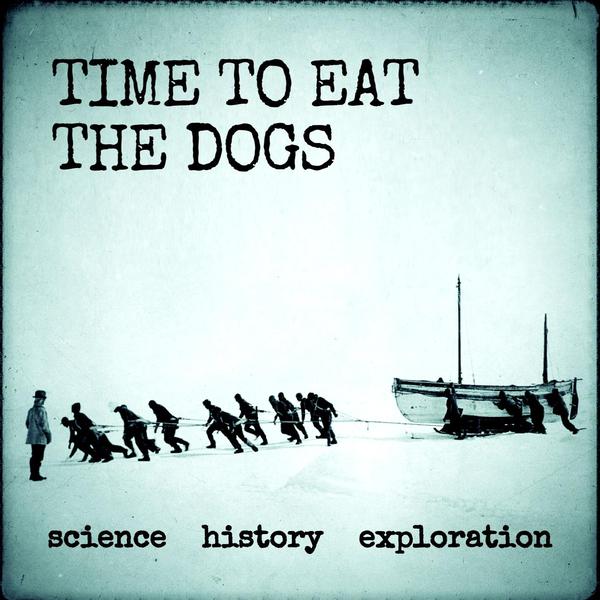
Time to Eat the Dogs
Michael Robinson: historian of science and exploration
- 32 minutes 43 seconds3I/ATLAS, SETI, and the Controversy Over How We Search for Extraterrestrial Life
Jason Wright talks about 3I/ATLAS, the controversy surrounding it, and the way the search for life in the universe is beginning to change. Wright is a professor of astronomy and astrophysics at Penn State University. He's the director of the Penn State Extraterrestrial Intelligence Center. He is also the author of The Search for Extraterrestrial Intelligence: Theory and Practice.
27 January 2026, 3:47 pm - 33 minutes 59 secondsGems, Science, and Empire
17th century traders who traveled the sea routes between India and Southeast Asia were interested in spices, but they were also interested in gemstones, objects of desire, commercial value, and increasingly, scientific fascination. Claire Conklin Sabel talks about the gem trade in South and Southeast Asia, and the way this trade was impacted by European traders in the 17th and 18th centuries. Sabel is a historian of early modern earth science and a post-doctoral researcher at the University of Vienna. She is working on her a book project, Rare Earth: Gemstones, Geohistory, and Commercial Geography c. 1600-1750.
24 October 2025, 7:20 pm - 25 minutes 43 secondsArtificial General Intelligence, Part II
Part two of my interview with Julian Togelius, who talks about the history of machine learning, the quest for Artificial General Intelligence, and the difficulties AI researchers have in defining exactly what intelligence is. Togelius is an associate professor of Computer Science at New York University. He is the author of Artificial General Intelligence, published recently by MIT Press.
6 July 2025, 10:18 pm - 30 minutes 54 secondsArtificial General Intelligence, Part I
In the first of two episodes, Julian Togelius talks about the history of machine learning, the quest for Artificial General Intelligence, and the difficulties AI researchers have in defining exactly what intelligence is. Togelius is an associate professor of Computer Science at New York University. He is the author of Artificial General Intelligence, published recently by MIT Press.
25 April 2025, 4:14 pm - 28 minutes 25 secondsReplay: Inventing the World
Meredith Small talks about the city of Venice and its importance to the history of travel and exploration. Small is professor emerita at Cornell University. She's the author of Inventing the World: Venice and the Transformation of Western Civilization
6 April 2025, 4:28 pm - 45 minutes 35 secondsThe Habitable Worlds Observatory
Dr. Giada Arney talks about the Habitable Worlds Observatory, a space telescope that, when it's built and launched into space, will be able to image planets in other solar systems directly, focusing on planets that may support life. Arney is a Research Space Scientist in the Planetary Systems Laboratory at NASA Goddard Space Flight Center. She's also the interim project scientist for the Habitable Worlds Observatory and the Deputy Principal Investigator of the DAVINCI mission to Venus.
21 March 2025, 4:23 pm - 32 minutes 39 secondsReplay: Icebound
In the late 1500s, Dutch navigator William Barrents sailed north in search of a Northeast Passage to Asia. This expedition and a second one both suffered hardships, but they were mild in comparison with the horrors of the third expedition. Andrea Pitzer talks about the Arctic voyages of William Barents and their impact on Europe for centuries to come. Pitzer is a journalist and author of Icebound: Shipwrecked at the Edge of the World.
28 February 2025, 6:25 pm - 39 minutes 56 secondsThe Europa Clipper and the Search for Extraterrestrial LIfe
Claire Isabel Webb talks about the Europa Clipper mission and NASA's broader agenda to find life on other worlds. Webb is a historian of science and directs the Future Humans program at the Berggruen Institute. Her opinion piece, "Can We Please Just Find the Aliens Already," was published by the New York Times in October, 2024
16 February 2025, 7:25 pm - 30 minutes 51 secondsReplay: Enemy of All Mankind
Steven Johnson talks about the British pirate Henry Every and his improbable capture of the Mughal treasure ship, Gunsway. Johnson is the author of twelve books, including Enemy of All Mankind, Farsighted, Where Good Ideas Come From, and The Ghost Map. He's also the host of the PBS series How We Got To Now and the podcast American Innovations.
2 February 2025, 6:34 pm - 36 minutes 12 secondsMountains, Writers, and Travelers in the 18th Century Alps
Célia Abele talks about Wolfgang von Goethe, the French writer Chateaubriand, and the German physicist Georg Lichtenberg. These writers became fascinated in the Alps and volcanoes such as Vesuvius. Abele is an assistant professor of French at Boston College. She's the author of "Mountain Time: Tense Futures and Present Pasts in the Alps and Vesuvius around 1800."
26 January 2025, 4:32 pm - 36 minutes 47 secondsOn the Backs of Others: Rethinking the History of British Geographical Exploration
Ed Armston-Sheret returns to Time to Eat the Dogs to talk about British geographical expeditions and the labor that made them possible, specifically the labor of local peoples that is frequently omitted from explorer accounts. Armston-Sheret is a Fellow at the Institute of Historical Research, University of London. He's the author of On the Backs of Others: Rethinking the History of British Geographical Exploration.
11 November 2024, 11:01 pm - More Episodes? Get the App